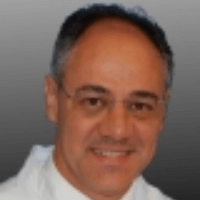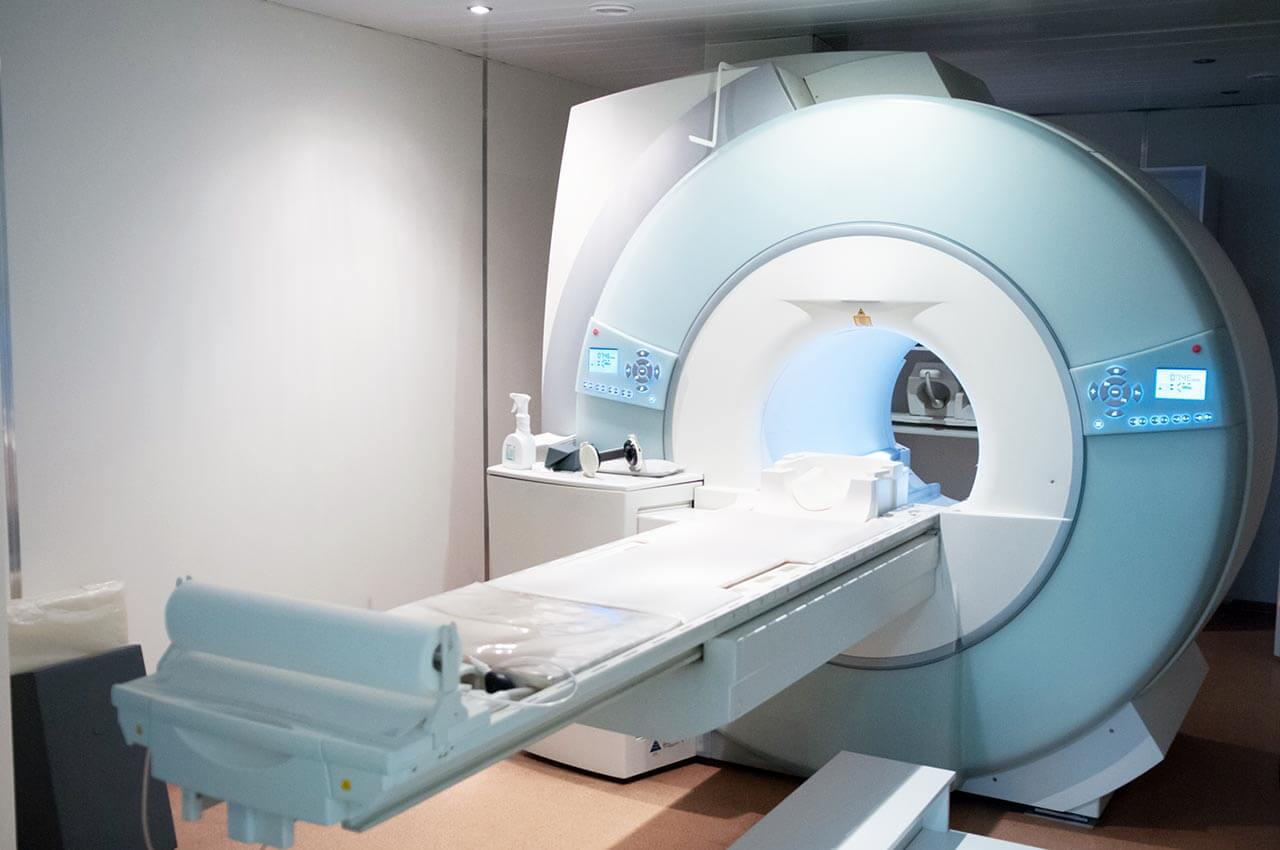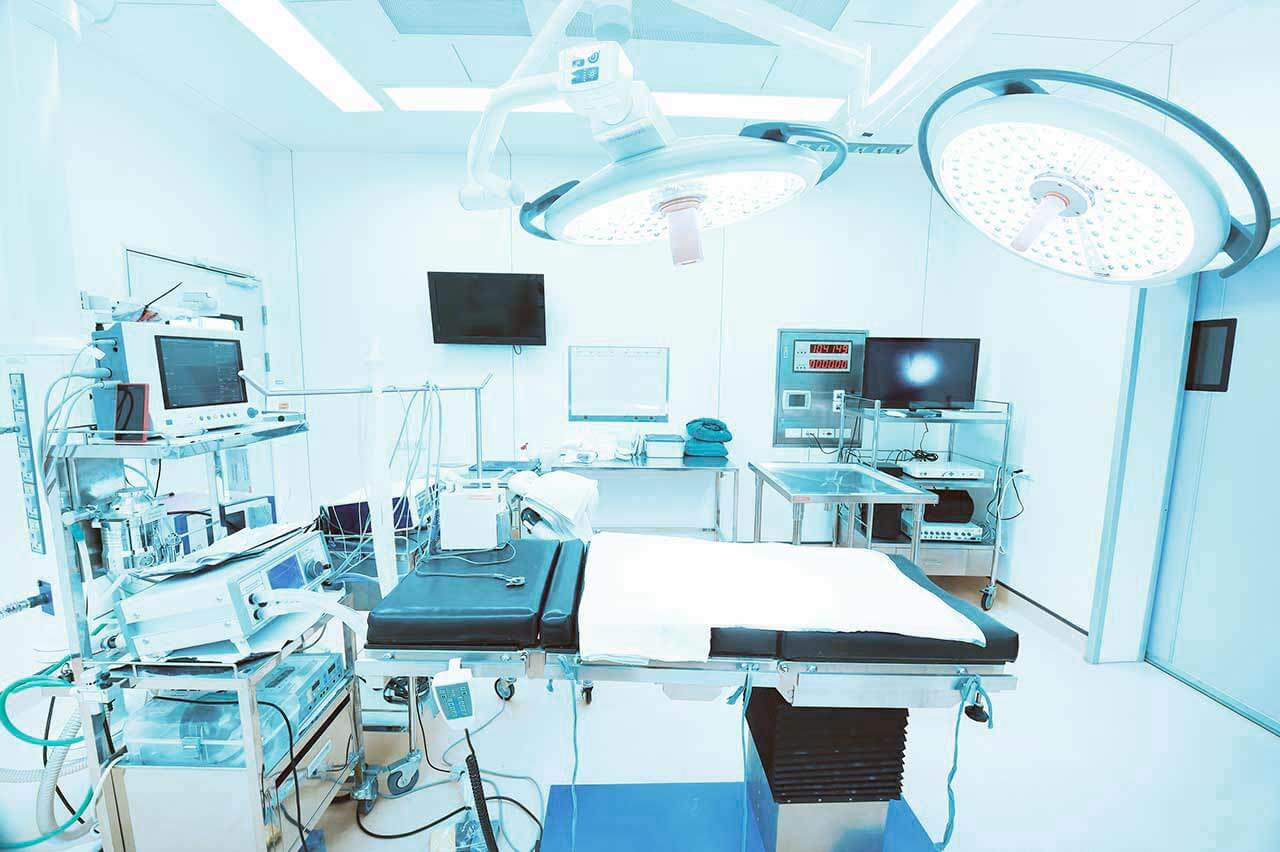
The program includes:
- Initial presentation in the clinic
- clinical history taking
- review of medical records
- physical examination
- laboratory tests:
- complete blood count
- general urine analysis
- biochemical analysis of blood
- inflammation indicators (CRP, ESR)
- TSH, fT3, fT4
- indicators of blood coagulation
- neurological examination
- CT/MRI scan
- neuropsychological tests (if indicated):
- ENMG (electroneuromyography)
- EEG (electroencephalography)
- SEPs (somatosensory evoked potentials)
- VEPs (visually evoked potentials)
- BAEP tests (brainstem auditory evoked potentials)
- stationary EEG monitoring
- preoperative care
- surgical treatment of epilepsy with deep brain stimulation and installation of
neurostimulator (including the cost of neurostimulator) - 1-day intensive care unit stay
- postoperative MRI control
- symptomatic treatment
- control examinations
- the cost of essential medicines and materials
- nursing services
- full hospital accommodation
- developing of further guidance
How program is carried out
During the first visit, the physician will conduct a clinical examination and neurological examination, and go through the results of the available diagnostic tests. After that, you will undergo the necessary additional examination, such as the laboratory blood and urine tests, MRI or CT scan. Based on the results of an additional examination, the physician will clarify the localization of epileptogenic foci in the brain. After that, the preparation according to the preoperative standard will begin.
The first stage of treatment is the implantation of stimulating electrodes into the brain. The operation is performed under local anesthesia, through a small opening in the skull. You will be awake and communicating with your surgeon, so that he will be able to assess the correctness of the brain electrodes placement.
The second stage of treatment is the implantation of a neurostimulator, which will generate electrical impulses that regulate the work of the brain. Depending on the anatomical peculiarities, the surgeon will place the neurostimulator under the collarbone or in the abdomen and attach the brain electrodes to it. Typically, this operation is performed under general anesthesia.
After the completion of the operation, you will stay in the intensive care unit, under the round-the-clock supervision of physicians and nurses. When the condition becomes stable, you will be transferred to a regular ward.
Your physician will evaluate the results of the postoperative MRI and program the neurostimulator according to your individual needs. You will be able to turn the device on and off yourself. After setting up the neurostimulator, the attending physician will schedule the date of discharge from the hospital and give you detailed recommendations for further follow-up and treatment.
Required documents
- Medical records
- EEG (if available)
- MRI/CT scan (if available)
Service
You may also book:
 BookingHealth Price from:
BookingHealth Price from:
About the department
The Department of Adult and Pediatric Neurosurgery at the University Hospital Tuebingen offers the diagnostics and surgical treatment of all diseases of the nervous system. The department has the expert competence in the field of complex neurosurgical interventions and is one of the leading surgery centers for skull basis, pituitary, and peripheral nerve interventions. The department specializes in pediatric neurosurgery, vascular neurosurgery, surgery for the brain tumors and complex interventions on the spinal cord. The department is headed by an advanced surgeon with an impeccable reputation, Prof. Dr. med. Marcos Tatagiba.
One of the main focuses of the department is the diagnostics and treatment of all types of brain tumors. These include primary neuroepithelial brain tumors (diffuse gliomas, neuronal, and neuroglial tumors), cranial nerve tumors (for example, such nerve sheath tumors as vestibular schwannoma), brain meninges tumors (for example, meningiomas), lymphomas, germ cell tumors, as well as secondary tumors (metastases). The treatment regimen is determined depending on the histological type of the tumor, age of the patient, the neurological condition before the operation, and a number of other factors. The treatment is carried out in accordance with the current international requirements and protocols.
The department is the recognized Pediatric Neurosurgery Center. Often, the interdisciplinary collaboration is required for the successful treatment of pediatric neurosurgical pathologies. The advantage of the department is the proximity with the Pediatric Clinic and other specialized departments, which ensures prompt consultations from the necessary specialists and develops comprehensive treatment regimens. Pediatric neurosurgery deals with the surgical treatment of tumors, vascular malformations, infectious lesions (brain, spinal cord, and nerves), other malformations of the brain/spinal cord, spine, impaired cerebrospinal fluid circulation, epilepsy, etc. in children and adolescents under the age of 18.
The diagnostic and therapeutic range of the department includes:
Diagnostics and surgical treatment of epilepsy | |
Neuro-oncology |
|
Functional neurosurgery | |
Diagnostics and treatment of pituitary diseases | |
Diagnostics and treatment of hydrocephalus | |
| Pediatric neurosurgery |
|
Moyamoya disease | |
Neurosurgical intensive care | |
Neurofibromatosis | |
Diagnostics and treatment of peripheral nerve diseases | |
| Skull base surgery | |
Pain therapy | |
Vascular neurosurgery | |
Spinal surgery | |
Diagnostics and treatment of other neurosurgical diseases |
Curriculum vitae
- 1980 - 1985 Study of Medicine at Rio de Janeiro State University, Brazil.
- 1986 Fellowship at Institute for Pathology, Nordstadt Hospital, Hannover.
- 1987 - 1993 Residency Program in Neurosurgery (Department of Neurosurgery, Nordstadt Hospital, Hannover.
- 1992 Doctoral thesis defense at the Hannover Medical School.
- 1993 Board of Neurosurgery at the Medical Chamber of Lower Saxony, Germany.
- 1994 - 1997 Staff Member of the Department of Neurosurgery, Nordstadt Hospital, Hannover.
- 1995 Research Fellow at the Institute for Brain Research, University of Zurich.
- 01/98 - 09/02 Staff Member at the Department of Neurosurgery, Hannover Medical School.
- 1998 Postdoctoral Thesis at the Hannover Medical School.
- 10/00 - 09/02 Vice Director at the International Neuroscience Institute (INI) Hannover.
- 10/02 - 09/03 Vice Director, Department of Neurosurgery, University of Freiburg.
- 05/2003 Visiting Professor at the Wayne State University, School of Medicine, Department of Neurological Surgery and Children’s Hospital of Michigan, Detroit, MI (USA).
- 2003 Appointed as the Director and Chairman, Department of Neurosurgery, University of Tuebingen, Germany.
- 2006 Appointed as the Chairman and Director at the Department of Neurosurgery, University of Zurich.
- Since 2006, Local Director of the annual ATCHYN Program between the Brazilian Academy of Neurosurgery and the University of Tuebingen, Department of Neurosurgery.
Major Prizes and Honors
- 1997 Young Neurosurgeon Award, World Federation of Neurosurgical Societies.
- 2001 Aesculap/EANS Prize, European Association of Neurosurgical Societies.
- 2001 Academic Adviser of Jiangyin International Cooperative Neuro-Center, Southeast University School of Medicine, China.
- 2002 Prize of the Neurosurgical Research Foundation, German Society of Neurosurgery.
- 2003 Visiting Professor at the Wayne State University, School of Medicine, Department of Neurosurgery and Children’s Hospital of Michigan, Detroit, MI (USA).
- 2007 Innovationspreis Medizintechnik – Federal Ministry of Educationa and Science (BMBF), Germany.
- 2010 Visiting Professor, People’s Hospital, Affiliated Hospital of the University of Peking, Peoples Republic of China.
- 2013 Comenda Estrela Spica da Educacao e Cultura, Capitulo Norte da Academia Brasileira de Neurocirurgia.
- 2016 Keller Lecturer 2016, Department of Neurosurgery, University of Cincinnati, OH, USA.
Membership of Scientific and Medical Societies
- Member of the German Society of Neurosurgery (Deutsche Gesellschaft für Neurochirurgie).
- Member of the Congress of Neurological Surgeons (CNS-USA).
- Member of the American Association of Neurological Surgeons (AANS-USA).
- Member (Titular) da Sociedade Brasileira de Neurocirurgia.
- Member of the Brazilian Academy of Neurosurgery.
- Honory Member of Centro de Estudos da Santa Casa de Misericordia de Belo Horizonte.
- Member of the German Society of Skull Base Surgery.
- Member of the Executive Committee of the German Skull Base Society, Treasurer.
- Member of the European Skull Base Society.
- Member of the German Academy of Neurosurgery (GANS).
- Member of the European Neurological Society.
- Member of the Academia Eurasiana.
- Past-President of the German Academy of Neurosurgery.
- Past-President, German Skull Base Society.
Photo of the doctor: (c) Universitätsklinikum Tübingen
About hospital
According to the prestigious medical publication Focus, the University Hospital Tuebingen ranks among the top five German hospitals!
The hospital was founded in 1805, therefore it is proud of its long history, unique experience, and outstanding achievements in the field of medical care, as well as research and teaching activities. Nowadays, it is one of the most advanced medical institutions, which provides a wide range of general and highly specialized medical services. The hospital combines the state-of-art medical technologies in the field of diagnostics and the very latest treatment methods of a wide range of diseases.
The hospital has 17 specialized departments, which cover almost all fields of modern medicine and contribute to the top-class medical service in Germany. It treats about 367,000 outpatients and 74,000 inpatients annually. This testifies to the high authority of the hospital at the national and international medical arena. This is the first German hospital, which confirmed the high quality of healthcare and the effectiveness of service with a KTQ certification (in 2009).
Photo: (с) depositphotos
Accommodation in hospital
Patients rooms
The patients of the University Hospital Tuebingen live in comfortable single and double rooms with an ensuite bathroom equipped with a shower and toilet. The beds in the patient rooms are equipped with orthopedic mattresses that promote good and full sleep. There is a TV in the room, and it is also possible to connect a smartphone or laptop to the Internet. In addition, there is enough space in the patient room to receive 2-3 guests without inconvenience for the second patient.
The enhanced-comfort rooms include a hairdryer, heated towel rail, a large mirror, a direct dial telephone, a flat-screen satellite TV, a writing desk, free Internet access, a mini-bar and a refrigerator.
Meals and Menus
The patients of the hospital are offered tasty and healthy three meals a day: breakfast, lunch and dinner. Breakfast is served as a buffet, while for lunch and dinner there is a choice of several menus. Also, if desired, the patient will be provided with an individual menu. There are several cafes and cafeterias on the territory of the hospital, where one can have a tasty meal or enjoy a cup of coffee, tea and dessert.
Further details
Standard rooms include:
Religion
Religious services are available upon request.
Accompanying person
During the inpatient program, an accompanying person can stay with you in a patient room or in a hotel of your choice.
Hotel
During the outpatient program, you can stay in a hotel of your choice. Our managers will help you choose the most suitable option for you.




